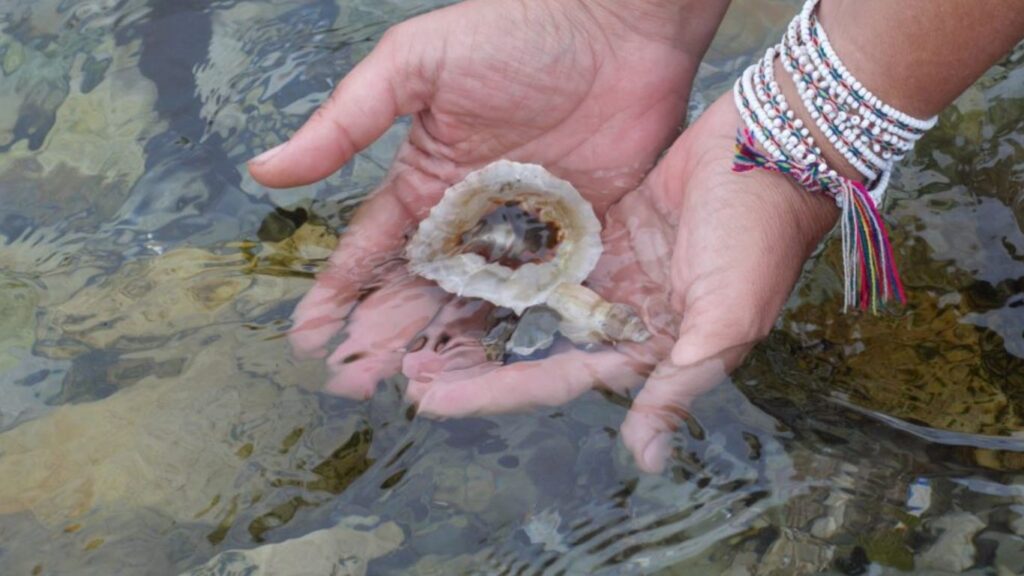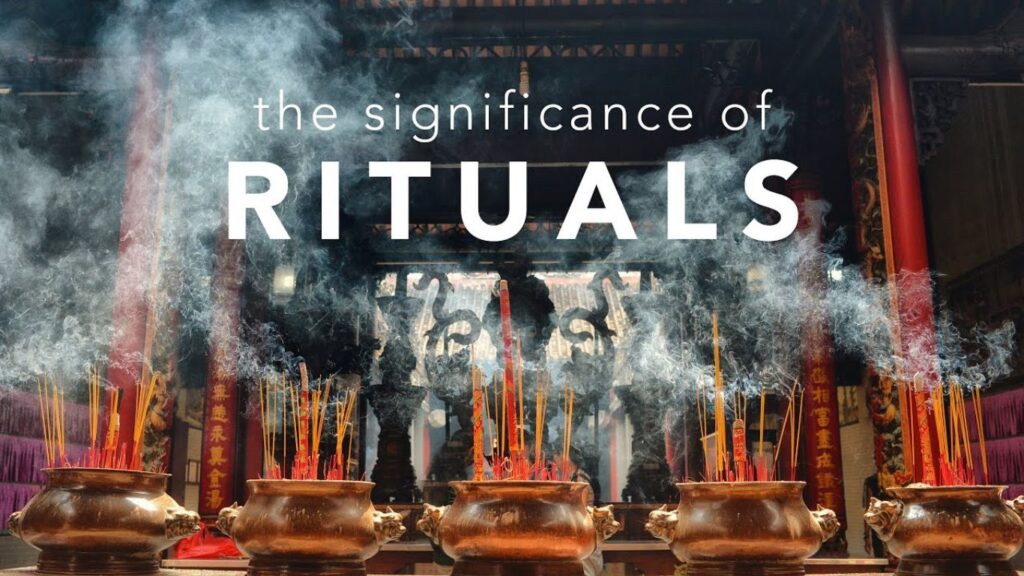The Mandau sword holds deep spiritual significance for many indigenous communities in Borneo. It’s not just a weapon, but a conduit to the spiritual realm. Praying to the Mandau spirit at a river is a sacred ritual that connects practitioners to their ancestors and the natural world. This practice requires reverence, preparation, and understanding.
The Mandau: More Than Just a Sword
The Mandau is a traditional sword of the Dayak people of Borneo. It’s a fearsome weapon with a rich history. Each Mandau is unique, often adorned with intricate carvings and precious materials. These swords are passed down through generations, accumulating spiritual power. The Mandau embodies the strength and wisdom of ancestors.
For the Dayak, the Mandau is alive with spiritual energy. It’s believed to house a powerful spirit. This spirit can offer protection, guidance, and blessings. The Mandau is used in important ceremonies and rituals. It’s not just a tool for war, but a bridge between the physical and spiritual worlds.
Why Pray to the Mandau Spirit?
Praying to the Mandau spirit is a way to seek divine intervention. People turn to this practice for various reasons. Some seek protection from harm or evil spirits. Others ask for strength in times of difficulty. Many pray for success in their endeavors or for guidance in making important decisions.
The Mandau spirit is seen as a powerful ally. It’s believed to have the ability to influence both the natural and supernatural realms. By connecting with this spirit, practitioners hope to tap into its ancient wisdom and power. The ritual is also a way to honor ancestors and maintain cultural traditions.
Praying to the Mandau spirit at a river holds special significance. Rivers are seen as sacred places in many cultures. They represent the flow of life and the connection between worlds. The combination of the Mandau’s spirit and the river’s energy creates a potent spiritual environment.
Preparing for the Ritual
Proper preparation is crucial for this sacred ritual. It shows respect for the spirit and increases the likelihood of a successful outcome. Here are the key steps to prepare:

READ THIS : Betting Basics 101: Your Ultimate Guide to Getting Started
Step 1: Choose the Right Time and Place
Selecting an appropriate location and time is vital. Find a quiet spot along a river where you won’t be disturbed. Early morning or twilight are often considered auspicious times. Avoid performing the ritual during storms or when the river is dangerously high.
Step 2: Gather Your Offerings
Offerings are an essential part of the ritual. They demonstrate your sincerity and gratitude. Common offerings include:
- Rice or other grains
- Fruits, especially those native to the region
- Flowers or fragrant leaves
- Incense or aromatic woods
- Small amounts of tobacco or betel nut (if culturally appropriate)
Choose offerings that are meaningful to you and your community. The quality of the offerings matters more than the quantity.
Step 3: Perform a Cleansing Ceremony
Before approaching the Mandau spirit, it’s important to cleanse yourself. This can involve:
- Taking a ritual bath in the river
- Smudging with sacred herbs
- Reciting purification prayers or mantras
Cleansing helps to rid yourself of negative energies and prepares you to enter a sacred space.
The Ritual: Praying to the Mandau Spirit
Once you’ve prepared yourself and gathered your offerings, you’re ready to begin the ritual. Follow these steps with sincerity and respect:
Step 1: Set Up Your Prayer Area
Choose a spot near the river’s edge. Clear the area of debris. You may want to create a small altar using flat stones or a clean cloth. Place your Mandau (if you have one) and your offerings on this altar. If you don’t have a Mandau, you can use a representation or simply focus on the spirit.
Step 2: Begin with an Invocation
Start by calling upon the Mandau spirit. Use traditional invocations if you know them. If not, speak from your heart. Introduce yourself and state your intention to communicate with the spirit. Be respectful and humble in your approach.
Step 3: Offer Your Gifts
Present your offerings to the Mandau spirit. Explain the significance of each item as you place it on the altar. Express your gratitude for the spirit’s presence and willingness to listen. Some practitioners sprinkle a small amount of each offering into the river as a way of sharing with the water spirits.
Step 4: Silent Reflection and Communication
After presenting your offerings, take time for silent reflection. Listen to the sounds of the river and the surrounding nature. Open your mind and heart to any messages or sensations you might receive. This is a time for deep, spiritual communion.
Step 5: State Your Purpose
Clearly and respectfully state the purpose of your prayer. Whether you’re seeking protection, guidance, or blessings, be honest and direct. Explain why this is important to you and how it aligns with your values and the spirit’s teachings.
ALSO READ THIS : Here Reigns The Vengeful Villainess Spoiler: Your Complete Guide
Step 6: Conclude the Ritual
Thank the Mandau spirit for its time and attention. Express your gratitude for any insights or blessings received. Some practitioners leave a portion of their offerings at the site, while others may release them into the river. Follow the traditions of your community or your personal spiritual guidance.
Significance and Benefits of the Ritual

Praying to the Mandau spirit at the river is a profound spiritual experience. It connects practitioners to their cultural heritage and the natural world. This ritual can provide numerous benefits:
- Spiritual guidance and clarity
- A sense of protection and empowerment
- Deeper connection to ancestors and tradition
- Increased awareness of the interconnectedness of all things
- Personal growth and self-reflection
Many who practice this ritual report feeling a renewed sense of purpose and balance in their lives. It can be a powerful tool for navigating life’s challenges and celebrating its joys.
Frequently Asked Questions
Is it disrespectful to pray to the Mandau spirit if I’m not Dayak?
While it’s important to approach with respect and understanding, many spirits welcome sincere seekers from all backgrounds.
Can I perform this ritual without a physical Mandau?
Yes, the spirit can be invoked without the physical sword, though having one deepens the connection.
How often should I perform this ritual?
The frequency depends on personal needs and cultural traditions. Some do it annually, others in times of need.
What if I don’t feel anything during the ritual?
Answer: Spiritual experiences vary. Keep an open mind and heart, and don’t force expectations.
Can I adapt the ritual to fit my personal beliefs?
While respecting core traditions, many find ways to incorporate personal spiritual elements into the practice.
Conclusion
Praying to the Mandau spirit at the river is a sacred and meaningful practice. It offers a way to connect with ancient wisdom, seek guidance, and honor cultural traditions. By approaching this ritual with sincerity, respect, and open-heartedness, practitioners can experience profound spiritual benefits.
Whether you’re drawn to this practice through cultural heritage or spiritual curiosity, remember that the most important elements are your intention and respect for the traditions. As with any spiritual practice, it’s a deeply personal journey that can lead to greater understanding of yourself and the world around you.

Brook with 5 years in celebrity styling. Transforms A-list looks into wearable trends.
Expert in red carpet glamour and everyday chic for the stars.





